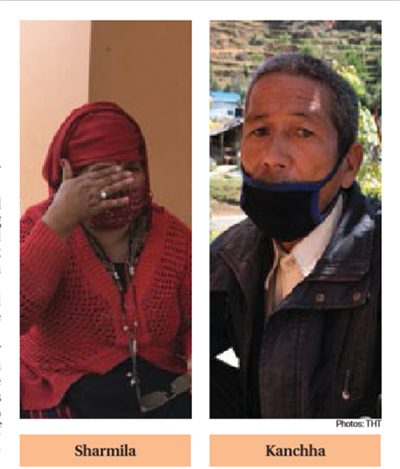Penniless and nothing to eat
Kathmandu, April 9
Sharmila Khadka, 45, left her paralysed ex-army husband and five school-going children back home in Dailekh and came to Kathmandu last month to work for a vegetable farm at Syuchatar. A farm tunnel has been her home since.
Back in Dailekh, Sharmila has a small house and some land to support the family, but has no hard cash.
She was beginning to adjust to her new life at the vegetable farm but then the government imposed nationwide lockdown in the face of coronavirus contagion. Her contractor returned to Dailekh leaving her in the company of her elderly neighbour Kanchha Blon, 59, and his ill wife.
Besides being penniless, she has nothing to eat. And, there’s no one that she knows to turn for help.
Similar is the fate of Kanchha and his wife, who needs to undergo kidney treatment. She was taken to hospital but doctors refused to admit her.
“We have no food to eat, no money to buy anything,” Sharmila sobbed. “We have been on empty stomachs.”
At around 11.30 this morning, when they were going door to door at Ichangu, they came across a kind landlady. “She gave me one full meal and one thousand rupees and some clothes to both of us.” Kanchha had tea, biscuits and a banana.
Sharmila, Kanchha and other tunnel workers went to Syuchatar ward office for relief materials, but they were refused. Ward officials demanded their citizenship, which they had left back home. Municipality officials asked them to produce letters of reference from house-owners. “We live in a tunnel at the vegetable farm. Where do we get reference letters from the landlords?” she asked.
The two farm workers said they had horrible experience during the lockdown. “Police beat us up saying we were defying the lockdown. They wouldn’t understand our problems,” said Sharmila. According to them, many Kathmandu landlords not only scolded and humiliated them for knocking on their iron gates during the lockdown, some even let their dogs loose. “We can’t go home, We don’t have food. Nor can we turn to anyone for help.”
A version of this article appears in e-paper on April 10, 2020 of The Himalayan Times.






